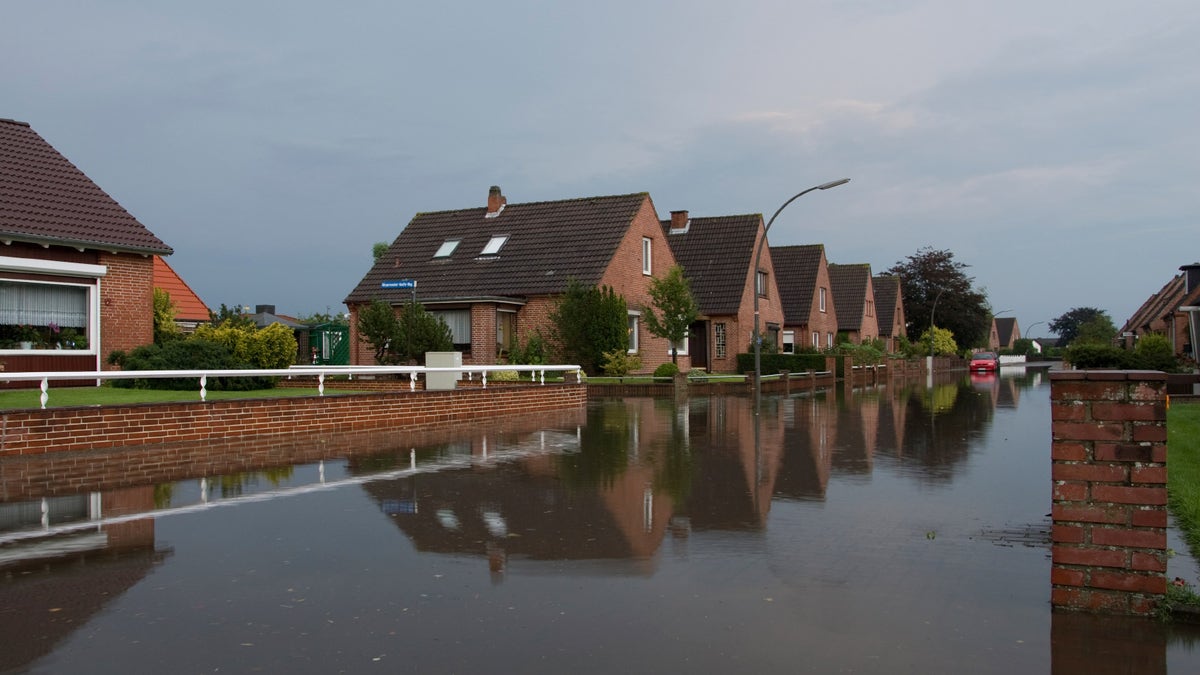
hurricane-flood
As Hurricane Patricia, the strongest storm in recorded history, barrels toward southwestern Mexico and the resort town of Puerto Vallarta, it's yet another reminder that although coastal living can be awfully appealing, it comes with considerable risks.
Still, the unique culture of beach towns has an almost magical appeal. So when you weigh that against the risk of hurricane damage, how can you decide whether it's worth it? Here are some questions to ask to help you figure that out:
1. How much will insurance cost?
Regardless of whether a hurricane hits, you'll need to pay for hurricane insurance. And rates really do run the gamut: In 2012, Florida had the highest average premiums, $2,084 per year, while Idaho had the lowest, $538, according to the Insurance Information Institute (III). So before you even start house hunting, meet with an insurance agent. It might feel like you're doing things backward, but an insurance agent can give you a rough estimate of what you can expect to pay each year.
2. Should I buy on the beach, or a few blocks in?
Where you decide to buy can make a difference in your premiums and risk, even if you choose a property just a few miles inland. It all comes down to flood hazard areas defined by the National Flood Insurance Program's Flood Insurance Rate Map. The highest risk areas are marked as Special Flood Hazard Areas and have at least a 1 in 4 chance of flooding during a 30-year mortgage.
And remember, you don't have to be near the water to be in a flood hazard area, as communities in central Texas and Oklahoma learned this spring. So when you're house hunting, consider where each house falls on the map, but also check its flood-zone designation.
3. What type of house should I get?
The type of house you buy can also make a difference, because some are designed specifically to withstand hurricanes. The home may have a dome shape that reduces wind damage, for example, or rest on stilts to escape flooding. These homes may also get a better rating from your insurance provider (translation: lower payments).
So make sure to ask your agent to show you any homes specifically designed to battle the wind and water -- or if you'd rather have a traditional house, hire a good inspector to give you a realistic view of the building's hurricane resistance before you make an offer.
"If a house is built to code and to withstand a strong storm or hurricane, it can help lower insurance costs," says Jeanne Salvatore, chief communications officer for the III. If the home isn't up to code, it may make sense to steer clear or bring in a contractor for some improvements, but be sure to crunch the numbers before you commit. If the insurance savings aren't bigger than the cost to remodel, it's probably not worth it.
4. If damage does happen, what's my deductible?
"Hurricanes are covered in a homeowners policy, no matter where you live," says Loretta Worters, vice president of communication for III. That makes sense, after all, since hurricanes are still basically wind and rain -- just more of it. But policies differ on your financial responsibility if you have to file a hurricane-related claim.
Most insurance companies tack on a hurricane deductible for homeowners in potential danger zones. And unlike regular homeowners insurance, you'll have to pay this additional deductible if you file a claim.
"It is expressed as a percentage of the amount of insurance you have on the house, generally 2% to 5%," says Salvatore.
Bottom line: You may not be able to get out of a hurricane deductible altogether, but you can save some cash by shopping around. The cost can vary among insurance companies, so get at least three estimates before you decide on a carrier.
5. Do I need flood insurance, too?
Regular homeowners insurance isn't all you need if you live in a coastal region. Typically, homeowners insurance covers damage related to the high-powered winds of hurricanes and tropical storms. But it does not cover the other major problem: flooding.
To keep yourself protected, you'll need a flood policy. Issued by the National Flood Insurance Program, a policy will cover the damage to your property if the heavy rains or toppled levees causes flooding in your home. Ask your insurance agent to go over the policy carefully and explain any concepts you don't understand. If you're not fully covered by flood, you may regret it later.